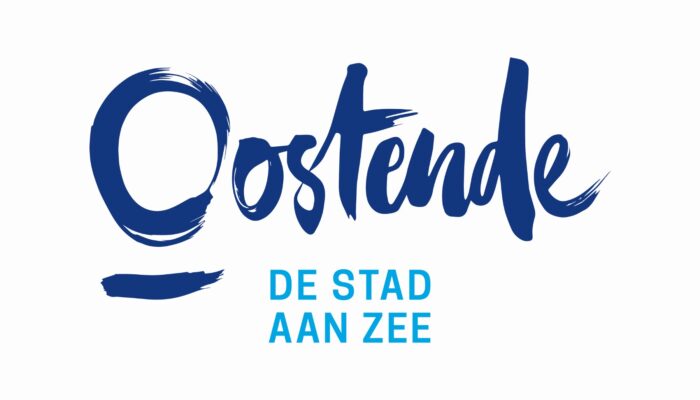Residential conference: Teamwork or Battle? The Dance Between Science, Police, and Policy
8-9 May 2025, Thermae Palace, Ostend (Belgium)

The Centre for Policing and Security (CPS) is celebrating its 35th anniversary with a special two-day conference titled: “Teamwork or Battle? The Dance Between Science, Police and Policy.”
This conference offers a unique opportunity to reflect on the complex relationship between practice and science within the field of policing, alongside leading scholars, policymakers, and police professionals. While science and practice often view each other critically – resulting in cultural differences and tensions -it is crucial to continue exploring ways in which they can mutually strengthen each other.
During this two-day event, we will focus on various forms of cooperation between police and academia. We will examine the historical evolution of this relationship in Belgium and abroad and explore how scientific research can be effectively integrated into policing practices and policy. What does the police expect from science? And how can researchers, despite certain limitations, make a valuable contribution to policing?
We look forward to welcoming you on May 8–9, 2025, at the beautiful Thermae Palace in Ostend for two days of inspiring keynotes, engaging workshops, and meaningful discussions. Together, let’s shape the future of policing and science.
On the evening of Thursday, May 8, 2025, we will celebrate CPS’s 35th anniversary with a festive evening event, followed by an overnight stay at Thermae Palace.
The working language of this conference is Dutch. Paul Betts’ contribution and the three discussion groups ‘Police-Science-Nexus’ are in English, organised in collaboration with ESC Working Group on Policing (Chaired by Marleen Easton).


| 9:00 AM | Welcome with Coffee and Tea | |
| 9:30 AM | Opening Remarks by the Day’s Chair (NL) Dirk Van Daele, Professor KU Leuven, Chair of CPS | |
| 9:40 AM | Introduction: Science as a Critical Friend? (NL) Marleen Easton, Professor, Ghent University & University of Queensland | |
| 10:10 AM | Can academic research improve policing practices and policies? (ENG) Paul Betts, PhD and Honorary Professor Criminal Justice, University of Birmingham, England | |
| 10:30 AM | Break with Coffee and Tea | |
| 11:00 AM | Discussion Groups: | |
| 1) Police Education (NL) | ||
 Positioning Police Education in Higher Education: Sofie De Kimpe, Professor, Vrije Universiteit Brussel Positioning Police Education in Higher Education: Sofie De Kimpe, Professor, Vrije Universiteit Brussel Professional Bachelor vs. Academic Bachelor: Evelien De Pauw, Research Manager, VIVES University of Applied Sciences Professional Bachelor vs. Academic Bachelor: Evelien De Pauw, Research Manager, VIVES University of Applied Sciences Current Status of the NEPO Project: Federal Police, DGR Current Status of the NEPO Project: Federal Police, DGR Presentation of a Blueprint for a ‘Master in Police Sciences’: Member of the CPS Working Group ‘Police Education’ Presentation of a Blueprint for a ‘Master in Police Sciences’: Member of the CPS Working Group ‘Police Education’ Debate with the audience Debate with the audience | ||
| 2) Towards a Contemporary Police System (NL) | ||
 The Need for Police System Reform: Challenges and Future Scenarios: Dirk Dirk Van Daele, Professor KU Leuven The Need for Police System Reform: Challenges and Future Scenarios: Dirk Dirk Van Daele, Professor KU Leuven Reflections on a Unified Police System Based on Dutch Experiences: Theo Postma, Advisor to the National Police Leadership, National Police of the Netherlands Reflections on a Unified Police System Based on Dutch Experiences: Theo Postma, Advisor to the National Police Leadership, National Police of the Netherlands Reflections and debate Reflections and debate | ||
| 3) Human Skills in a Technology-Driven World (NL) | ||
This session explores the interaction between human skills and technological tools in policing. While technology can accelerate and objectify processes, the human component remains crucial in decision-making, empathy, and ethical considerations. From Data to Dialogue: The Role of Technology in the Daily Work of Community Police Officers in Belgium and the Netherlands: Jasper De Paepe, PhD Researcher, Institute of Security and Global Affairs, Leiden University & Faculty of Economics and Business Administration, Ghent University From Data to Dialogue: The Role of Technology in the Daily Work of Community Police Officers in Belgium and the Netherlands: Jasper De Paepe, PhD Researcher, Institute of Security and Global Affairs, Leiden University & Faculty of Economics and Business Administration, Ghent University Data-Driven Command? The Use of Technology in Protest Management by the Belgian Police: Donatella Van Biervliet, PhD Researcher (FWO Fellow), Leuven Institute of Criminology, KU Leuven Data-Driven Command? The Use of Technology in Protest Management by the Belgian Police: Donatella Van Biervliet, PhD Researcher (FWO Fellow), Leuven Institute of Criminology, KU Leuven Strengthening the Local Police Approach to Online Crime in the Netherlands: Dr. Jurjen Jansen, Lecturer in Digital Resilience of People and Organizations, Police Academy & NHL Stenden University of Applied Sciences Strengthening the Local Police Approach to Online Crime in the Netherlands: Dr. Jurjen Jansen, Lecturer in Digital Resilience of People and Organizations, Police Academy & NHL Stenden University of Applied Sciences Discussion and Debate Moderated by: Mark Crispel, Chief of Police, Zennevallei Police Zone Discussion and Debate Moderated by: Mark Crispel, Chief of Police, Zennevallei Police Zone | ||
| 4) Discussions on the Policing-Science Nexus (ENG): Institutionalisation of the Relationship between Police and Academia in different European Countries | ||
| This session explores the institutionalisation of the relationship between police and academia in different European countries. Some of the leading questions will be:  Who pays and who leads? International perspectives on who funds policing related research and what this means for police practitioners and academics. Who pays and who leads? International perspectives on who funds policing related research and what this means for police practitioners and academics. Are there local arrangements for pracademics and practitioners to get involved in research? What is the impact of this? Are there local arrangements for pracademics and practitioners to get involved in research? What is the impact of this? How do we organise police-science collaborations: The institutionalisation of partnerships and financial and resource commitments. How do we organise police-science collaborations: The institutionalisation of partnerships and financial and resource commitments.This panel is chaired by Guðmundur Oddsson, professor of Sociology at the University of Akureyri (UNAK)/Iceland, and animated by Arne Dormaels, Business Developer at Ghent University’s multidisciplinary economic valorization consortium Smart Solutions for Secure Societies (i4S) at UGent/Belgium; Liz Aston, Director of the Scottish Institute for Policing Research (SIPR) and Professor of Criminology at Edinburgh Napier University/Scotland and Paweł Waszkiewicz, professor at the Department of Criminalistics at the Faculty of Law and Administration at the University of Warsaw/Poland. | ||
| 1:00PM | Lunch | |
| 2:00 PM | Integration of Science Within Defense: How and What? Benefits and Challenges Jan Vanhaecht, Global Digital Identity leader, Deloitte – Cyber Risk Services (NL) | |
| 2:30 PM | Discussion Groups: | |
| 1) Navigating a Complex Society: Police Leadership and Science as a Guide (NL) | ||
In this workshop, we will discuss the renewed leadership vision of the Integrated Police with the audience. We will incorporate scientific insights and focus on topics such as fair decision-making, humble leadership, evaluation, organizational culture, and the integrity of police leaders. Renewed Leadership Vision of the Integrated Police: Tine Van Thielen, Advisor, Federal Police, DGR Renewed Leadership Vision of the Integrated Police: Tine Van Thielen, Advisor, Federal Police, DGR Interactive Debate on the Implementation of the Leadership Vision, moderated by Filip Van Steenbergen, Acting Chief of Police, Kastze Police Zone Interactive Debate on the Implementation of the Leadership Vision, moderated by Filip Van Steenbergen, Acting Chief of Police, Kastze Police Zone | ||
| 2) Towards a Contemporary Police System (NL) | ||
 The Impact of Societal Developments on Basic Police Services: Marijke Martens, Chief of Police, Kempenland Police Zone & Kurt Marcoen, Chief of Police, Hageland Police Zone The Impact of Societal Developments on Basic Police Services: Marijke Martens, Chief of Police, Kempenland Police Zone & Kurt Marcoen, Chief of Police, Hageland Police Zone Core Tasks of the Police: Eddy De Raedt, Chief Commissioner, Chief of Staff to the Commissioner-General, Federal Police Core Tasks of the Police: Eddy De Raedt, Chief Commissioner, Chief of Staff to the Commissioner-General, Federal Police Police Scaling and Financing: Jelle Janssens, Professor, Ghent University Police Scaling and Financing: Jelle Janssens, Professor, Ghent University Reflections and Debate Reflections and Debate | ||
| 3) Community-Oriented Policing, Technology, and the Digitalized Society (NL) | ||
 Community-Oriented Policing in Transition: An Empirical Exploration of the Influence of Technology on the Five Pillars within the Street-Level Work: Eline Van Acker, Research Fellow, Department of Public Governance and Management, Ghent University Community-Oriented Policing in Transition: An Empirical Exploration of the Influence of Technology on the Five Pillars within the Street-Level Work: Eline Van Acker, Research Fellow, Department of Public Governance and Management, Ghent University Self-Legitimacy in the Technological Era: Insights from Participatory Observations with the Belgian Local Police: Lies Vande Meulebroucke, PhD Researcher, Research Group Crime & Society (CRiS), Vrije Universiteit Brussel Self-Legitimacy in the Technological Era: Insights from Participatory Observations with the Belgian Local Police: Lies Vande Meulebroucke, PhD Researcher, Research Group Crime & Society (CRiS), Vrije Universiteit Brussel Debate Moderated by: Jasper De Paepe, PhD Researcher, Policing Studies Team, Institute of Security and Global Affairs, Leiden University & Department of Public Governance and Management, Ghent University Debate Moderated by: Jasper De Paepe, PhD Researcher, Policing Studies Team, Institute of Security and Global Affairs, Leiden University & Department of Public Governance and Management, Ghent University | ||
| 4) Discussions on the the Policing-Science Nexus (ENG): Cultural Dimension of the Relationship between Police and Academics | ||
| This session explores the cultural dimension of the relationship between police and academics considering both of their perspectives. Some of the leading questions are:  How do we navigate different expectations of what research is and what it can achieve? How do we navigate different expectations of what research is and what it can achieve? How do we overcome our own institutional cultural barriers to impactful and meaningful policing related research? How do we overcome our own institutional cultural barriers to impactful and meaningful policing related research? How can practitioners and academics work together despite differences of opinion and unhelpful structures? How can practitioners and academics work together despite differences of opinion and unhelpful structures?This panel is chaired by Marleen Easton, Professor in Sociology at Ghent University, and animated by Denise Martin, professor in Criminology and Policing at Northumbria University in Newcastle/England; Dominique Van Ryckeghem, Adjunct Police Chief, Local Police Mechelen/Belgium, Tyler Cawthray, assistant Professor Criminology and Criminal Justice at Bond University in Queensland/Australia and Brenda Van Roosmalen, Head of department Police-profession, Dutch Police (Zeeland-West Brabant) | ||
| 4:15 PM | Free Time |

| 6:00 PM | Reception with live piano music – Jara (Jarajazz.com) | |
| 7:00 PM | Dinner | |
| 9:30 PM | Dance party: Academics, Police and Policymakers, together on the dance floor | |
| 1:00 AM | End |

| 8:00 AM | Morning Activity | |
| until 9:00 AM | Breakfast | |
| 9:00 AM | Welcome with Coffee and Tea | |
| 9:30 AM | Opening Remarks by the Day’s Chair: What’s on the Menu Today? (NL) Dirk Van Daele, Professor, KU Leuven, Chair of CPS | |
| 9:40 AM | Take Care of Your Golden Apples! (NL) What Can Research on Police Stops in Belgium and Other European Countries Teach Us About the Relationship Between Policing and Science? Sofie De Kimpe, Professor, Vrije Universiteit Brussel | |
| 10:10AM | Big Data Policing: How Can Collaboration Between Science and Practice Improve Police Work? (NL) Wim Hardyns, Professor, Ghent University & University of Antwerp | |
| 10:30 AM | Reflections from the Balcony: “Janssen and De Landsheer” (NL) Janine Janssen, Professor, Open University & Utrecht University Jurgen De Landsheer, Chief of Police, Brussels South Police Zone | |
| 10:40 AM | Break with Coffee and Tea | |
| 11:00 AM | Discussion Groups: | |
| 1) How Inclusive Is the ‘Blue Family’? (NL) | ||
In this workshop we will explore tools, best practices, and success factors for making police organizations more inclusive and diverse. The Ambivalence Around Diversity and Inclusion: Saniye Çelik, Special Professor of Diversity and Inclusion in Policing, Institute of Security and Global Affairs, Leiden University The Ambivalence Around Diversity and Inclusion: Saniye Çelik, Special Professor of Diversity and Inclusion in Policing, Institute of Security and Global Affairs, Leiden University Debate moderated by: Steven Debbaut, Postdoctoral Researcher, Research Group Crime & Society (CRiS), Vrije Universiteit Brussel with Prof. Sanyie Çelik (University of Leiden), Maria De Sterck (President of Womenpol), Nele Van de Kerkhof (Local Police of Antwerp), Prof. Sofie De Kimpe (Vrije Universiteit Brussel) en Prof. Antoinette Verhage (Ghent University). Debate moderated by: Steven Debbaut, Postdoctoral Researcher, Research Group Crime & Society (CRiS), Vrije Universiteit Brussel with Prof. Sanyie Çelik (University of Leiden), Maria De Sterck (President of Womenpol), Nele Van de Kerkhof (Local Police of Antwerp), Prof. Sofie De Kimpe (Vrije Universiteit Brussel) en Prof. Antoinette Verhage (Ghent University). | ||
| 2) Towards a Contemporary Police System: Lifelong Learning Within the Police (NL) | ||
 Innovation and Professionalization in Criminal Investigations: Lore Mergaerts, Professor, KU Leuven Innovation and Professionalization in Criminal Investigations: Lore Mergaerts, Professor, KU Leuven Towards Evolving and Contemporary Competencies for Police Personnel: Walter Vranckx, Chief of Police, Lubbeek Police Zone Towards Evolving and Contemporary Competencies for Police Personnel: Walter Vranckx, Chief of Police, Lubbeek Police Zone Reflections from the Federal Police: Lore Boey and Karen Moernaut, DRP, Federal Police Reflections from the Federal Police: Lore Boey and Karen Moernaut, DRP, Federal Police Debate Debate | ||
| 3) Police workforces impacted by new cyber threats and technology trends (ENG) | ||
This session focuses on the rapidly evolving domain of cyber technology and its impact of police workforces and provides insight into the most current trends, risks and opportunities within the digital space. This session will be chaired by Chris Bombeke, Security Consultant AGORIA Security & Safety, Business Development Manager PITAGONE, Project Manager PZ Rivierenland. Eric Van Cangh: ASCD Senior Business Group Leader Cyber – Cybersecurity Personality finalist 2024, Permanent chairman of ICS/OT and European regulations Focus groups at Belgian CyberSecurity Coalition, Board Member of the Women4cyber Belgium Eric Van Cangh: ASCD Senior Business Group Leader Cyber – Cybersecurity Personality finalist 2024, Permanent chairman of ICS/OT and European regulations Focus groups at Belgian CyberSecurity Coalition, Board Member of the Women4cyber Belgium Saskia Van Uffelen, Agoria Manager Future Workforce – Cyber War for Talent Saskia Van Uffelen, Agoria Manager Future Workforce – Cyber War for Talent Discussion with the audience Discussion with the audience | ||
| 4) Discussions on the Policing-Science Nexus (ENG): Lessons Learned from Good and Bad Experiences and Practices in the Field | ||
| This session explores lessons learned from good and bad experiences and practices in the field, inspired by case studies. Some of the questions on the table are:  What is success and for whom? What do we want out of police-academic partnerships and what are international examples of good practice? What is success and for whom? What do we want out of police-academic partnerships and what are international examples of good practice? Where do we draw the line? What are our boundaries within police-academic partnerships? What are we not willing to compromise on in relation to methods, ethics, analysis and interpretation, sharing data, or sharing findings for example. What impact might this have on partnerships? Where do we draw the line? What are our boundaries within police-academic partnerships? What are we not willing to compromise on in relation to methods, ethics, analysis and interpretation, sharing data, or sharing findings for example. What impact might this have on partnerships?This session will be chaired by Larissa Engelmann, research fellow at the ESRC Vulnerability and Policing Research Centre at Leeds University/England and animated by Isabel Verwee, Knowledge Group Manager at VIAS institute Belgium; Sarah Charman, professor of Criminology in the School of Criminology and Criminal Justice at the University of Portsmouth/England; Filip Rasschaert, Chief of Local Police Gent/Belgium and Janine Janssen, Professor of Criminology and Legal Anthropology at the Open University in the Netherlands. | ||
| 1:00 PM | Lunch | |
| 2:00 PM | Roundtable Discussion with the Discussion Group Chairs: Lessons Learned – Reflections from Science and Practice (NL) Moderator: Dirk Van Daele, Professor, KU Leuven | |
| 3:00 PM | Closing Panel Debate: Police, Policymakers, and Academics Together on the Dance Floor (NL) Moderator: Evelien De Pauw, Research Manager, VIVES University of Applied Sciences | |
| 4:00 PM | Reflections from the Balcony: “Janssen and De Landsheer” (NL) Janine Janssen, Professor, Open University & Utrecht University Jurgen De Landsheer, Chief of Police, Brussels South Police Zone | |
| 4:15 PM | Closing Remarks by the Day’s Chair (NL) | |
| 4:30 PM | Closing Networking Drink |
Target Audience
Members of the integrated police, academia, and students of criminology, public administration, sociology, political and social sciences, security studies, etc.; local authorities; members of the judiciary and legal profession; members of special inspection services and regulatory bodies; private security services; private investigators; politicians; legal advisors; policy officers and decision-makers, and more.
Location
Thermae Palace
Koningin Astridlaan 7
B-8400 Ostend
www.thermaepalace.be
At Thermae Palace parking for groups is completely free. The car park has space for 170 vehicles. This gives you the freedom to use public transport or your car exactly as it suits you. If you prefer to come by train, then take the tram to Ostend and from there take the tram in the direction of De Panne until the swimming pool stop. The hotel is within a walking distance of 2 minutes.

Working Group
This Conference is a joint initiative of the CPS board members in collaboration with ESC Working Group on Policing (Chaired by Marleen Easton).
Leads:
- Prof. dr. Marleen Easton, UGent
- Prof. dr. Sofie De Kimpe VUB
- Prof. dr. Dirk Van Daele, KU Leuven
- Nathalie Roegiers, CPS
The following organizations support this initiative. Many thanks to:


The design is inspired by the dynamics of coral, with dancing branches symbolizing the close collaboration between the three partners: science, police, and policy. These branches represent their continuous interaction and interconnectedness, as they collectively contribute to our success.
Additionally, the CPS logo is subtly integrated, reinforcing the organization’s identity and emphasizing the unity within the partnership.
This logo captures the essence of the conference and what it stands for.

Practical information
Pricing for International Participants: Access to 1 Keynote and 3 Workshops in English:
- Full Conference (2 Days) + Evening Party (No Accommodation): € 250 per person
The conference registration includes lunches, coffee breaks, networking drinks, and a documentation folder.
For Dutch speaking International Participants, who have access to the whole conference, other Conference Fees apply:
Register here: https://www.policingandsecurity.be/activity/tweedaagse-residentiele-conferentie-samenspel-of-strijd-de-dans-tussen-politie-beleid-en-wetenschap/.
All conference attendees are warmly invited to the evening party, featuring:
- A reception,
- A festive three-course dinner,
- A dance party (until 1:00 AM), including coffee and drinks.
VAT Exemption applies under Article 44, §2, 4° of the Belgian VAT Code.
Accommodation:
Accommodation is available at the conference venue (Thermae Palace).
To benefit from the discounted room rate, bookings must be made through CPS, preferably along with the conference registration.
- Superior Room: €218 per person (incl. breakfast & VAT, excl. citytax €5)
Discounted rates apply as long as rooms are available.
If you’d like to extend your stay after the conference, you can do so at the same discounted rate (upon availability). Contact: sec@policingandsecurity.be
Cancellation Policy for Accommodation:
- Free cancellation up to 7 days before the conference.
- No-show fee: 100% of the booking cost.
- You can add accommodation later if not booked during registration.
Payment for the hotel is due upon arrival at the hotel (an invoice can be requested at check-in).
Payment:
Payment is due after receiving the invoice via email (unless otherwise requested).
Please provide the correct billing email address during registration.
Cancellation Policy
- Free cancellation up to 7 calendar days before the conference.
- If unable to attend, a replacement can take your place, provided you notify us at least 2 calendar days in advance.
- If cancellation or replacement is not communicated on time, the full registration fee will be charged.
Online registration
After registering online, you’ll receive an automatic confirmation email. The invoice will follow later.
A few weeks before the event, you’ll receive an email from sec@policingandsecurity.be with practical information.
Registration Tip:
Register one person at a time to select individual preferences, including accommodation.
If you’re unsure about accommodation during registration, you can inform us of your choice later via email.

